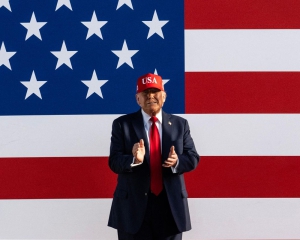Union Minister of State Jitendra Singh, on Friday said that “self-righteousness coupled with dictatorial tendencies, opportunism, lack of democratic ethos and dynastic ambitions” were the core reasons that led to the imposition of the Emergency in 1975. Speaking at a seminar titled ‘Bhartiya Loktantra aur Samvidhaan ka Sabse Andhkaarmaya Daur: Na Bhoolein, Na Kshama Karen’ at the Delhi Vidhan Sabha, Dr Singh cautioned that these same traits continue to manifest in contemporary Indian politics.
The event, organised under the banner of ‘SamvidhanHatyaDiwas’, marked the 50th anniversary of the Emergency (1975–77), a period widely regarded as one of the darkest in India’s democratic history. A commemorative booklet titled ‘Aapatkal @50’ was released during the event, along with a documentary screening that highlighted the excesses of that time.
Singh, in his address, described the Emergency as a direct assault on India’s democratic foundations. “Fundamental rights were suspended, press freedom was throttled and thousands of citizens were jailed without trial. Urban demolitions and forced sterilisation drives caused untold trauma.
The 42nd Constitutional Amendment extended legislative terms from five to six years — a move later rightly reversed by the 44th Amendment,” he said. Meanwhile, Speaker of the Delhi Legislative Assembly, Vijender Gupta, also addressed the gathering and emphasised the need for complete accountability. “The Shah Commission report in 1978 was unable to fully probe the scale of abuses committed during the Emergency. The truth remains partially buried. A fresh commission is essential to investigate and bring closure to the victims of that era,” he said.
Questioning the controversial changes made during this period, Gupta added, “Why were the words ‘Socialist’ and ‘Secular’ inserted into our Constitution through the 42nd Amendment under the cover of the Emergency? Such foundational alterations must always have broad national consensus and debate — not be imposed arbitrarily. It is the duty of every government to ensure that the lessons of the Emergency are neither forgotten nor repeated. Regular awareness programmes like today’s symposium are vital to remind future generations that the Constitution’s sanctity cannot be compromised.”
Former Union Minister Satyanarayan Jatiya echoed these sentiments, stating that the Constitution belongs to the people — not to any ruling party or individual.
“Any attempt to alter its character without broad-based consultation undermines its spirit,” he said.
Veteran journalist and India TV Chairman, Rajat Sharma, brought a deeply personal perspective, recalling his arrest at age 17 during student protests. “I was jailed for distributing anti-Emergency pamphlets with Vijay Goel. The press was silenced overnight, and even peaceful resistance was met with brutal force. I still bear the scars — not just physical, but emotional,” he shared.
Also present were Deputy Speaker Mohan Singh Bisht, Chief Whip Abhay Verma, former MP Ramesh Bidhuri, MLAs, constitutional scholars, senior journalists, and those who personally endured Emergency atrocities. The Speaker also distributed ‘The Emergency Diaries’, a book chronicling real-life experiences of that time.

























